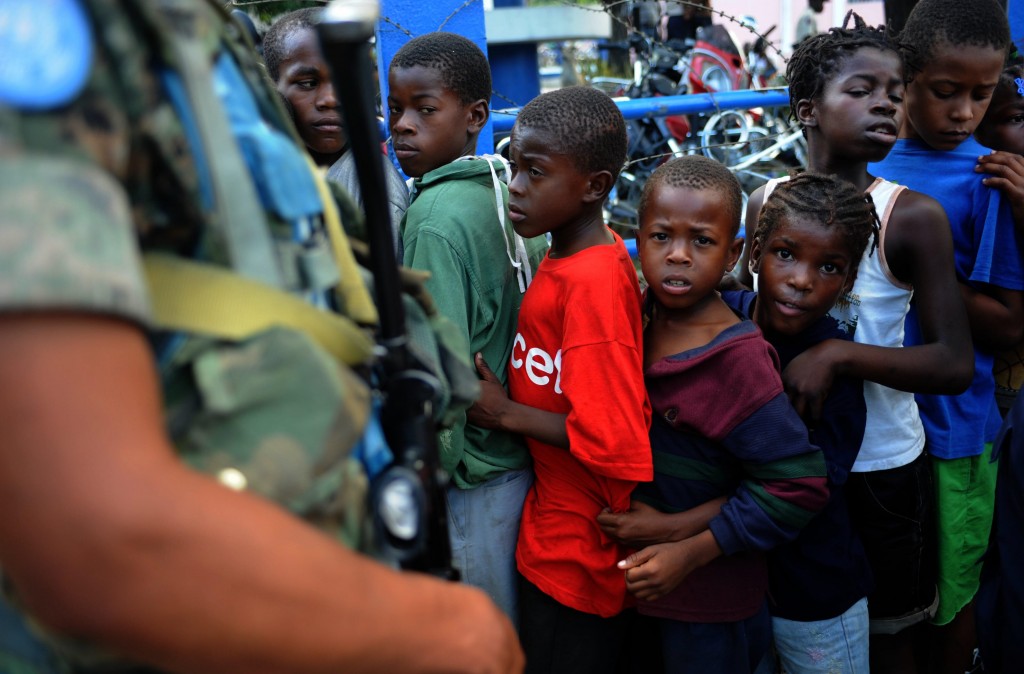
Dominican Republic: Mass expulsion, global revulsion
MIAMI – While the eyes of the world have been focused on the massive and perilous migration of Africans seeking to enter Europe, a different migration drama has been unfolding almost unnoticed much closer to home.
The government of the Dominican Republic is in the early stages of carrying out a massive deportation of persons of Haitian descent, including not only immigrants but people born in the Dominican Republic of Haitian parents. According to a ruling by the nation’s constitutional court, such persons are not Dominican citizens.
The threat of forcible deportation, to be carried out through a combined operation of the Ministry of Migration and the armed forces, has already set off a stampede of Haitians fleeing across the border. They fear being rounded up, mistreated, and deprived of their possessions by Dominican authorities, especially the armed forces. Those fears are well founded considering the long history of mistreatment of Haitians in the Dominican Republic and of human rights abuses by the army, including the 1937 massacre of about 30,000 Haitians living along the ill-defined border between the two nations. That atrocity was carried out by the brutal Trujillo dictatorship.
Even sectors of the Dominican press, seldom impartial on the Haitian question, have implicitly recognized that what is taking place is an exodus under duress, namely by referring to repatriations as “voluntary.” Soon any semblance of a voluntary emigration will be absent as Haitians are forcibly herded into military bases the armed forces has agreed to temporarily cede to immigration authorities for the expulsion operation.
The reason this forced migration is taking place now is that the period of “regularization” established by the Dominican Republic – under withering international criticism – to allow Haitians who meet certain conditions to acquire legal status recently expired. That the regularization process was mainly a sham is evidenced by the fact that, according to Dominican officials, out of about 290,000 who applied for regularization only 10,000 had the proper paperwork. That means that the regularization protects only 3-4 percent of applicants from deportation.
One of the reasons for that is that Haitians who worked in rural areas have long found obtaining a birth certificate for their Dominican-born children virtually impossible. Over the years there have been numerous reports that Dominican authorities routinely refused to issue birth certificates for the offspring of Haitian parents. The regularization process was also marred by lack of staff and resources. In contrast, it was recently announced that the armed forces had delivered to the Ministry of Immigration computers, trucks, ambulances and other supplies for the deportation operation.
It looks as if forcible deportations will begin soon. There is a chance, however, that enough international pressure could curtail or cut off the operation. New York City Mayor Bill de Blasio called the deportation plan illegal, immoral and racist, and he raised the specter of a boycott of the Dominican Republic by American tourists and conventioneers.
Dominican resistance to such international pressure has come from some surprising sources. In 2013, faced with similar pressures after the constitutional court ruling that many internationally saw as denationalizing a class of Dominicans because of their race, a defiant Nicolas De Jesus Lopez Rodriguez, Cardinal of Santo Domingo, declared: “International organizations don’t rule here. I don’t accept anybody coming here to decree anything. No country, not the United States, not France, nobody. Here, we are in charge.”
That attitude is not going to wash this time. Pope Francis has already told Dominican bishops that they “cannot be indifferent to the plight of Haitian immigrants.” It’s not clear if the Pope realizes that the main targets are not immigrants but Dominicans of Haitian descent who have been rendered stateless by their own country of birth. What seems clear is that if the expulsion process gets any uglier the Dominican Church and government will hear tougher words from Francis and many other international voices as well.
But this is not a row between Dominicans and the rest of the world. Often, it pits Dominican against Dominican. After the 2013 court ruling, Pulitzer Prize-winning Dominican American author Junot Diaz sharply criticized the Dominican government, saying that it’s a “horrifying, tragic irony that a country that has sent so many immigrants into the world who have suffered similar types of policies and types of stigma is victimizing its own immigrants.”
Dominican ambassador Jose Santana responded with a virulent personal attack: “To me you are no more than a fake and overrated pseudo intellectual, assuming his role in the gears of the system,” he wrote in an open letter to the writer.
The events now taking place in the Dominican Republic, like the increasing hostility against Africans in Europe and, especially, the horrific racist massacre in Charleston last week reminds us once again that the plague of racism is still very much with us.

